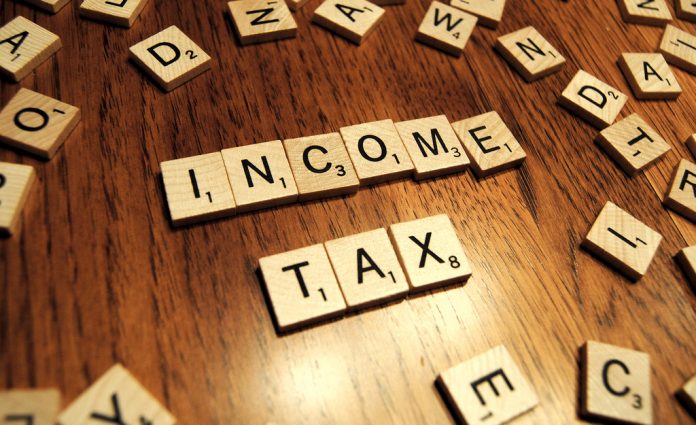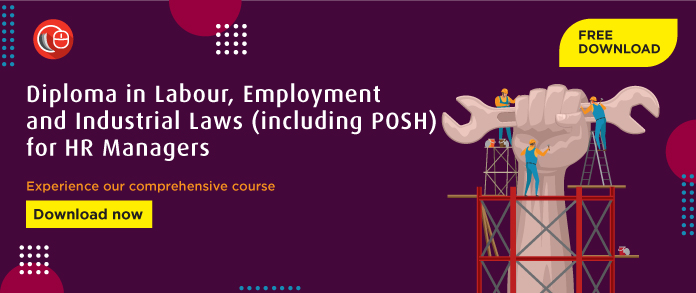This article has been written by Sujitha S, pursuing law at the School of Excellence in Law, Chennai. This article tries to elaborate on Section 234C of the Income Tax Act along with other related aspects and case laws.
This article has been published by Sneha Mahawar.
Table of Contents
Introduction
The Income Tax Department works to ensure that citizens may comply with making advance tax payments in a simple and straightforward manner. One may choose to pay it in 4 instalments during the financial year. It is now simpler for taxpayers to pay in instalments and avoid having to pay the whole amount in March. The provisions of Section 208 of the Income Tax Act, 1961 require taxpayers who must pay a tax of at least INR 10,000 to pay an advance tax. The income tax law further requires the person to pay the advance tax in a specific percentage (instalments). According to Section 234C of the Income Tax Act, the taxpayer would be responsible for paying interest if he does not pay the advance tax in a specific amount. This concludes a four-part series on the interest charges levied by the Income Tax Department. However, interest is charged when a taxpayer who must pay advance tax falls behind on any instalment payments. This article tries to make the legal intricacies of Section 234C clearer and easier.
Types of interest under Income Tax Act, 1961
The following categories of interest are often assessed to a taxpayer for a default:
Interest for late income tax return filing
Interest for late filing of an income tax return is covered under Section 234A. According to Section 234A of the Income Tax Act, interest is assessed for late submission of the income return. There will be interest assessed under this Section if the taxpayer submits their income tax return beyond the deadline established by the authorities.
Interest for delayed advance tax payment
Interest is assessed under Section 234B of the Income Tax Act in two situations:
- When the taxpayer has failed to pay advance tax, which he is required to do if his estimated tax liability for the year is Rs. 10,000 or more, or
- When the advance tax paid by the taxpayer is less than 90% of the assessed tax, which is the amount of tax determined under Section 143(1) and the tax on the total income determined under such regular assessment where regular assessment is made.
Interest for postponing advance tax payment
The rate of interest and circumstances if you postpone the advance tax instalments are outlined in Section 234C of the Income Tax Act. Everyone is expected to pay an advance tax every quarter of the fiscal year, even salaried taxpayers.
Section 234C of Income Tax Act, 1961
An assessee who does not pay or does not pay on time the advance tax payments as per Section 208 of the Act is required under Section 234C of the Act to pay interest. On the amount of the shortfall determined in relation to the due dates for advance tax payments, the assessee is required to pay simple interest at a rate of 1% per month for a period of three months.
When various advance tax instalments are postponed, interest is assessed under Section 234C in the following circumstances:
- Interest must be assessed for taxpayers other than those who have chosen the presumptive taxation plan under Section 44AD or Section 44ADA.
- If the amount of advance tax paid by the 15th of June or earlier is less than 12% of the tax due on the returning income;
- If the amount of advance tax paid by the 15th of September or earlier is less than 36% of the tax due on the returning income;
- If the advance tax paid by the deadline of December 15 is less than 75% of the tax due on the returned income;
- If the advance tax paid by the deadline of March 15 is less than 100% of the total tax due on the returned income.
- If the advance tax paid on or before the 15th of March is less than 100% of the tax owed on returned income, interest will be charged to taxpayers who choose the presumptive taxation plan under Section 44AD or Section 44ADA.
Illustration
Mr. Arun, a taxpayer, does not believe in the presumptive taxation structure described in Sections 44AD or 44ADA. For the entire fiscal year, he owes Rs 50,000 in taxes. As evidenced by the following, he has paid the advance tax:
Rs. 7,500 on June 15
Rs. 12,500 on September 15
Rs. 15,500 on December 15
Rs. 8,500 on March 15
Persons liable to pay advance tax under Section 234C of Income Tax Act, 1961
- Every assessee whose total tax bill exceeds Rs 10,000 after TDS/TCS deductions is required to pay an advance tax.
- The assessee in this instance consists of corporations, partnership firms, AOP/BOI, salaried workers, self-employed individuals and businesses, taxpayers who choose presumptive tax structures, and so on.
- When paying advance tax, regular taxpayers and those who use the presumptive taxation plan have distinct deadlines.
- A senior citizen who does not have any income falling under the category of Income from Business and Profession is free from paying advance tax if he is older than 60 years old.
Non-applicability of Section 234C of Income Tax Act, 1961
If the shortfall of advance tax in any instalment is the result of underestimating or failing to estimate any of the following incomes, Section 234C will not be applied.
- Income received as a result of winning in lotteries, crossword puzzles, etc.
- Gains in capital amount
- Revenue from a new venture
- Over Rs. 10,000 in dividend income from a domestic firm
The assessee also pays the tax owed on the income listed above. In addition, the assessee pays the advance tax by the due date of the subsequent instalment or, if none is due, by March 31.
Factors involved in the calculation of interest
| Subject matter | Section 234C |
| Rate of interest | In the event of any shortage or failure to pay any instalment of advance tax, each taxpayer is responsible for paying interest at the rate of 1% every month, or a portion of a month. Simple interest is the type of interest that is charged monthly. |
| Period | Interest is charged for three months if there is a deficiency or if the first, second, or third instalment of advance tax is not paid on time. The interest is only charged for one month if the final instalment, which was due on March 15th, was not paid in full. |
| Amount | The amount of the payment of advance tax that was not paid in full is subject to interest under Section 234C. |
Calculation of interest under Section 234C of Income Tax Act, 1961
When the taxpayer does not choose to have presumptive income under Section 44AD, interest is calculated under Section 234C.
- If the advance tax amount is less than 15% of what was paid on or before June 15th.
For three months, there will be a 1% monthly interest charge. 15% of the amount minus tax that was previously paid prior to the dates is the amount on which interest is computed.
- If the advance tax payment is less than 45% of what was made on or before September 15th. For three months, there will be a 1% monthly interest charge. 45% of the amount minus tax that was previously paid prior to the dates is the amount on which interest is computed.
- If the advance tax payment is less than 75% of what was made on or before December 15th. For three months, there will be a 1% monthly interest charge. 75% of the amount minus tax that was previously paid prior to the dates is the amount on which interest is computed.
Let’s use an example to help us understand this. For instance, if the tax liability is Rs. 300,000 and TDS deducted is Rs. 50,000, then
Advance tax paid on 15th, Rs. 30,000
Advance tax paid on 15th September, Rs. 80,000
Advance tax paid on 15th December, Rs. 70,000
Advance tax paid on 15th March, Rs. 60,000
Advance tax assessed for the year = Rs. (300,000-50,000) = Rs. 250,000
| Due date | Instalments | Amount | Paid | Difference | Interest |
| June 15 | 15% of 250,000 | 37,500 | 30,000 | 7500 | 7500 x 1% x 3 =225 |
| September 15 | 45% of 250,000 | 112,500 | 110,000 | 2500 | 2500 x 1% x 3=75 |
| December 15 | 75% of 250,000 | 187,500 | 180,000 | 7500 | 7500 x 1% x 3=225 |
| March 15 | 100% of 250,000 | 250,000 | 240,000 | 10,000 | 10,000 x 1% x 3=100 |
Therefore, the total interest =225+75+225= 625
If the taxpayer chooses presumptive income under Section 44AD, interest under Section 234C is calculated as follows.
| Date | Interest |
| On or before 15 June | Nil |
| On or before 15 September | Nil |
| On or before 15 December | Nil |
| On or before 15 March | Advance tax due of up to 100% |
Judgments related to Section 234C of Income Tax Act, 1961
Union Home Products Ltd. v. Union of India and Anr. (1995)
The Hon’ble Karnataka High Court held in the case of Union Home Products Ltd. v. Union of India and Anr. (1995) that the interest chargeable under Sections 234A and 234B of the Income Tax Act is compensatory in nature, but that the method of computation and the period of default for computation of interest under Section 234A were not discussed. The Hon’ble High Court ultimately held that the petitioner shall be free to raise any defences that may otherwise be available to him before the authorities concerned against the levy of recovery of the interest payable under Sections 234A, 234B, and 234C of the Act.
Prafulla Chandra R. Doshi and Ors. v. Asstt. Cit (2001)
The case of Prafulla Chandra R. Doshi and Ors. v. Asstt. Cit (2001) dealt with a substantial loss of revenue to the government in the ministry of finance to the tune of nearly Rs. 5 lakhs. The tribunal noted that there is a clear dispute and contention over whether interest should be charged in connection with orders made pursuant to Section 154 of the Act under the terms of Sections 234A, 234B, and 234C. The tribunal ruled that each case should be decided based on its own distinctive facts and that any interest paid by the appellants or accrued by the assessing officer while their appeals were pending should be reimbursed to them.
Dr. S. Reddappa and Ors. v. Union of India and Ors. (1998)
The Hon’ble Karnataka High Court’s observations in this case of Dr. S. Reddappa and Ors. v. Union of India and Ors. (1998) discussed the true compensatory nature of the levy of interest under Sections 234A, 234B, and 234C in light of the legislative objectives and intentions, which lead to the conclusion that if the aforementioned objects are understood in the right perspective, the basis for computation of such interest specifically provided in the relevant statute is appropriate.
Associated Cement Co. Ltd. v. CTO and Ors. (1981)
In Associated Cement Co. Ltd. v. CTO and Ors. (1981), the Supreme Court submitted that Sections 234B and 234C provisions violate natural justice principles and constitutional guarantees because they are confiscatory in character and there is no effective procedure in the Act to hear the assessee and resolve the case.
Aop Of Sanjaybhai R. Patel and 11 Ors. v. Assessing Officer (2004)
In this case, the Gujarat High Court held that Sections 234A, 234B, and 234C prohibit the Settlement Commission from waiving or reducing interest, but if the Commission does so within four years of the original order’s date passed under Section 245D of the Act, the Commission may do so in accordance with the provisions of Section 154 of the Act.
Conclusion
To conclude, Section 234C imposes a fine in the form of interest on the taxpayer for failure to make timely payments of deferred advance tax in amounts determined by the income tax department. The department set aside a suitable time frame and the percentage of the total to be paid up until that point. You will be charged interest at a rate of 1% per month on the remaining balance if you don’t pay that amount of advance tax by the stipulated deadlines.
Frequently Asked Questions (FAQs)
What is dividend income interest under Section 234C?
According to the Union Budget 2021, Section 234C interest on dividend income and capital gains would be relaxed if there was a gap in advance tax payments and the remaining tax was paid in subsequent advance tax instalments.
What is the advance payment interest rate under Section 234C?
In each quarter of the fiscal year, the department has set aside four payments for advance tax. You will be required to pay interest on the amount at a rate of 1% per month if you are unable to make these advance payments each quarter.
Is Section 234C applicable if an advance tax is not paid on time?
Section 234C has a set of rules that take effect if a taxpayer fails to pay advance tax on time. The tax department expects four instalments, one for each quarter of the fiscal year, to be paid on time as advance tax. If you don’t, Section 234C allows the tax department to impose an interest penalty.
What does “presumptive taxation structure” mean under Section 44AD?
Eligible enterprises may report earnings at 8% for non-digital transactions and 6% for digital transactions under the presumptive taxation structure outlined in Section 44AD. Only companies and professions with annual gross revenues of less than Rs. 50 lakh and total turnover/sales of less than Rs. 2 crores are eligible to apply.
What is the difference between Sections 234A, 234B and 234C?
- If a person delays filing their income tax return, interest under Section 234A of the Income Tax Act is assessed against them (ITR).
- Taxpayers who fail to pay their advance tax are subject to interest charges under Section 234B of the Income Tax Act.
- Taxpayers who fail to make advance tax instalment payments are subject to interest under Section 234C of the Income Tax Act.
Reference
- Interest under section 234C of the Income Tax Act (taxguru.in)
- Section 234C : Advance Tax Penalty – Delay in Payment – Learn by Quicko
- Section 234A of Income Tax Act-Interest on late filing of Income Tax Return (scripbox.com)
- Section 234C interest relaxed on dividend income, Capital Gain (taxguru.in)
- Section 234C: 2022 Guide On Section 234C Of Income Tax Act (navi.com)
- Section 234C: Interest on Deferred Payment of Advance Tax – Tax2win
- Section 234C – Interest Imposed by the Income Tax Department (cleartax.in)
- Interest Penalty Imposed under Section 234A, 234B and 234C of Income Tax Act (canarahsbclife.com)
Students of Lawsikho courses regularly produce writing assignments and work on practical exercises as a part of their coursework and develop themselves in real-life practical skills.
LawSikho has created a telegram group for exchanging legal knowledge, referrals, and various opportunities. You can click on this link and join:
Follow us on Instagram and subscribe to our YouTube channel for more amazing legal content.
 Serato DJ Crack 2025Serato DJ PRO Crack
Serato DJ Crack 2025Serato DJ PRO Crack












 Allow notifications
Allow notifications


